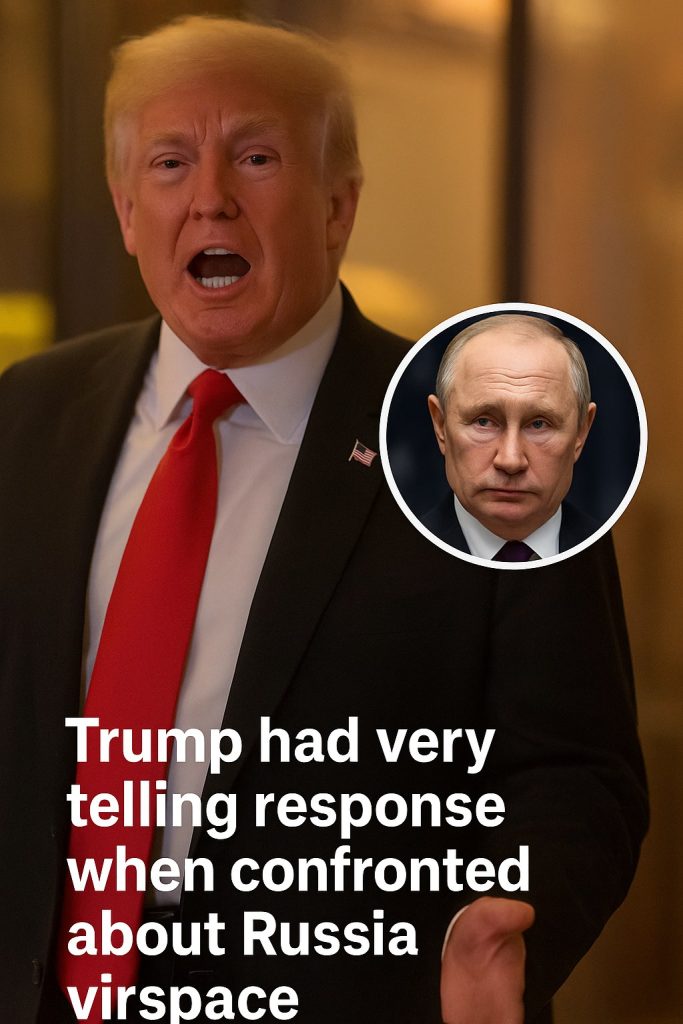In a world already tense with geopolitical volatility, recent reports of Russia violating Poland’s airspace have reignited fears of escalating conflict that some worry could spiral into a broader war. The incident, involving Russian military aircraft crossing into Polish airspace—a NATO member state—has intensified international scrutiny, diplomacy, and public anxiety. Amid this, former U.S. President Donald Trump has issued a notably pointed response, drawing widespread attention and varied reactions across social media and political spheres.
The Incident: Earlier this month, Russian military jets were detected entering Polish airspace for a brief but unauthorized period. Poland, a key NATO ally, promptly condemned the move, signaling it as a serious breach of sovereignty and international law. This breach comes against the backdrop of heightened tensions between Russia and NATO countries, due primarily to ongoing conflicts in Eastern Europe and contestations over territorial influence.
The Polish government quickly mobilized its air defenses and registered formal protests through diplomatic channels. NATO allies expressed solidarity with Poland, warning Russia that such incursions undermine regional security and stability. This breach has stoked fears that inadvertent or deliberate escalations could ignite a broader conflict, with some commentators even voicing concern about the possibility of a global military confrontation.
Trump’s Response: When confronted with questions about Russia’s violation and the mounting WW3 fears, Donald Trump offered a “telling” and candid remark that has since gone viral. Rather than adopting the alarmist tone common among many current policymakers, Trump appeared to challenge the prevailing narrative by emphasizing diplomatic caution and critiquing what he characterized as exaggerations in the portrayal of threats.
Trump stressed that while protecting alliances and territorial integrity is crucial, provocative rhetoric risks fueling panic rather than promoting measured responses. He suggested that dialogue and strategic negotiation remain preferable tools in defusing tensions. “Jumping straight to war does nobody any good,” Trump said, highlighting the importance of avoiding military escalations that could engulf nations in avoidable conflict.
His remarks were accompanied by a social media image featuring him alongside an adviser, reinforcing his stance on de-escalation. This approach has led to mixed interpretations: some view it as a pragmatic call for restraint, while others criticize it as downplaying the seriousness of Russia’s actions during such a sensitive period.
International and Public Reactions: The international community remains a tense watchtower as the situation unfolds. NATO officials have reiterated their commitment to defend member states and have increased aerial patrols along Poland’s eastern border. Meanwhile, Russia has offered terse statements denying any intentional breach, attributing the incident to a navigational error during routine maneuvers.
Public sentiment is divided. Many fear that ongoing airspace violations could be precursors to a larger military escalation, possibly involving multiple countries. Others, aligned with Trump’s viewpoint, argue for prioritizing diplomacy and stress that alarmist media coverage risks overinflating the crisis.
Context and Significance: Russia’s violation of Polish airspace symbolizes a dangerous breach in the fragile peace of Eastern Europe. It highlights the ongoing challenges NATO faces in deterring aggression while avoiding direct confrontation with Russia. Trump’s response reintroduces an important debate about managing international crises—balancing vigilance with restraint.
As the world watches NATO and Russia navigate this latest provocation, Trump’s remarks serve as a reminder of the fine line between preparedness and provocation. Whether his stance will influence policymakers or the public conversation remains to be seen, but his response undeniably adds a fresh dimension to a rapidly evolving story.
In these uncertain times, the overriding hope shared globally is for diplomacy to prevail, preventing a minor airspace violation from ign



